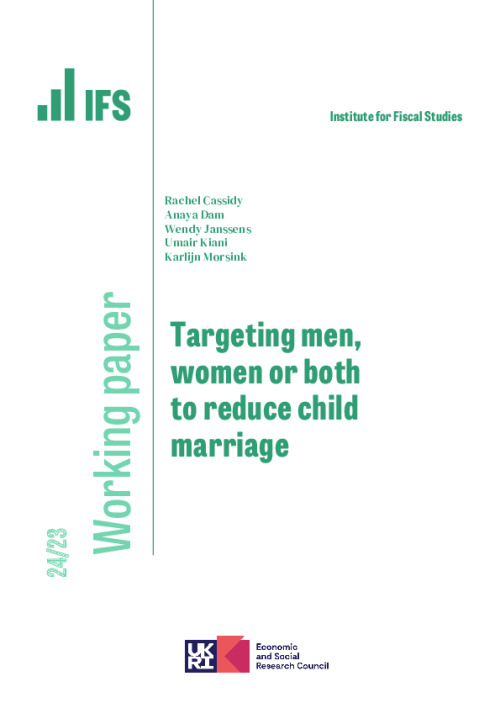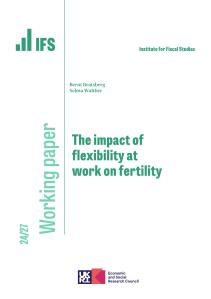Downloads

Download working paper here
PDF | 716.04 KB
We ask whether it is more effective to target men, women, or both – with the same intervention in the same context – to improve women’s outcomes when behaviour is governed by gendered social norms. We conduct a cluster-randomized controlled trial of an edutainment intervention in Pakistan – aimed at delaying marriage of adolescent girls, whereas community norms favour early marriage. We find that targeting men, either alone or jointly with women, reduces child marriages in households directly targeted by the intervention. Targeting women, however, either alone or jointly with men, leads to sustained reductions in child marriages at the village level. To rationalize this pattern of results, we build on a model of Bayesian persuasion in the household, where women are more hesitant to deviate from social norms. We extend this by allowing for gender-segregated information transmission from targeted spouses to other households in the village.
Authors

Research Associate World Bank
Rachel Cassidy is a Research Associate of the IFS and a Research Economist at the World Bank's Africa Gender Innovation Lab.
PhD Candidate Utrecht University of Economics

Amsterdam Institute for International Development
Centre for Economic Research Pakistan
Associate Professor of Economics Utrecht University of Economics
Working Paper details
- DOI
- 10.1920/wp.ifs.2024.2324
- Publisher
- Institute for Fiscal Studies
Suggested citation
Cassidy, R et al. (2024). Targeting men, women or both to reduce child marriage. 24/23. London: Institute for Fiscal Studies. Available at: https://ifs.org.uk/publications/targeting-men-women-or-both-reduce-child-marriage (accessed: 29 June 2024).
More from IFS
Understand this issue

Election Special: Is there a 'conspiracy of silence' between both parties?
6 June 2024

What does the Conservative's higher education announcement this week mean for apprenticeships and 'low-value' university courses?
1 June 2024

If you can’t see it, you can’t be it: role models influence female junior doctors’ choice of medical specialty
24 April 2024
Policy analysis

Free breakfast clubs in schools: what Labour’s plans would mean for pupils and families
25 June 2024

How do the last five years measure up on levelling up?
19 June 2024

The uncertain course for school and college funding over the next parliament
19 June 2024
Academic research

The intergenerational elasticity of earnings: Exploring the mechanisms
3 June 2024

Keeping the peace whilst getting your way: Information, persuasion and intimate partner violence
17 May 2024

The impact of flexibility at work on fertility
11 June 2024